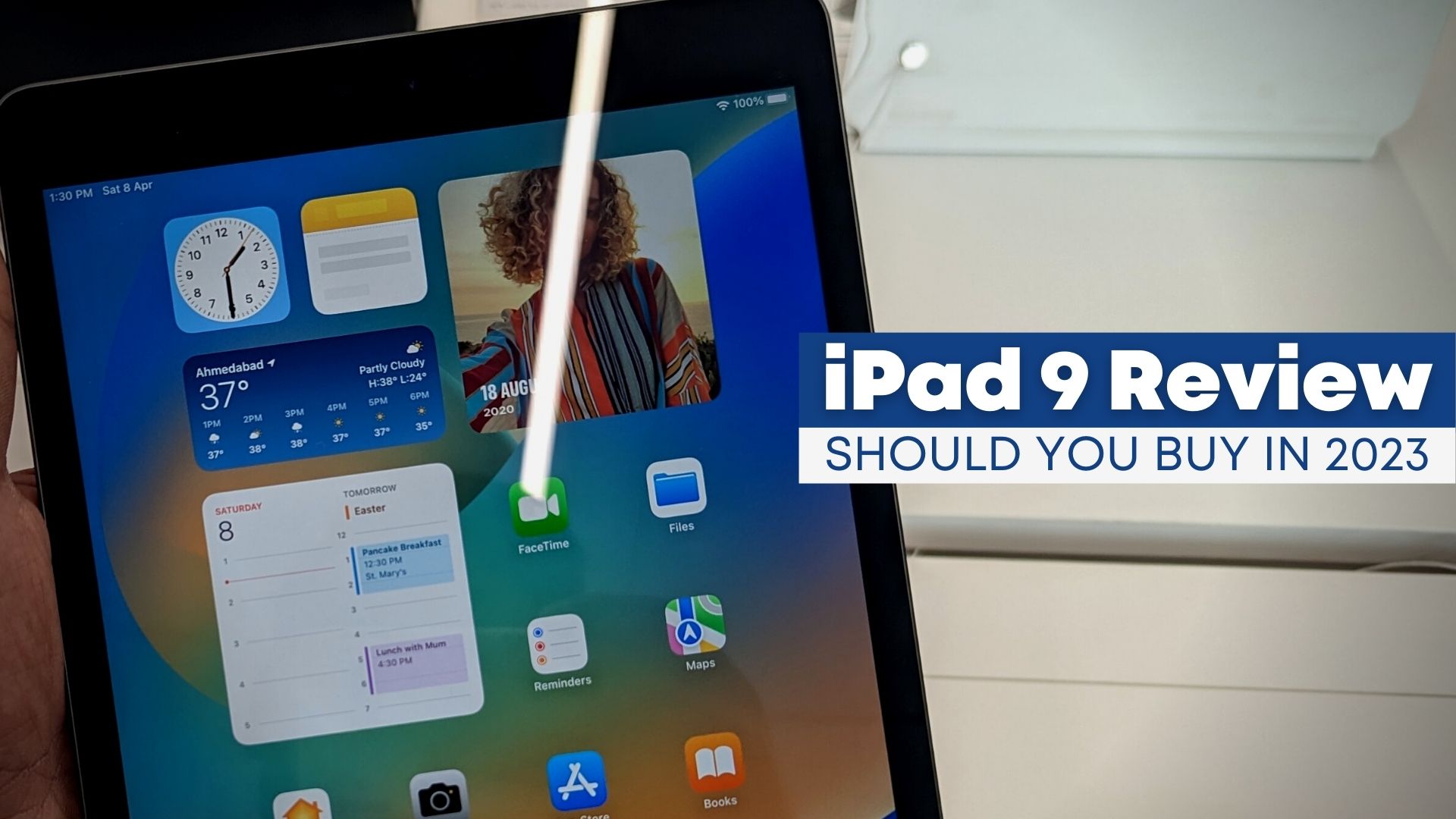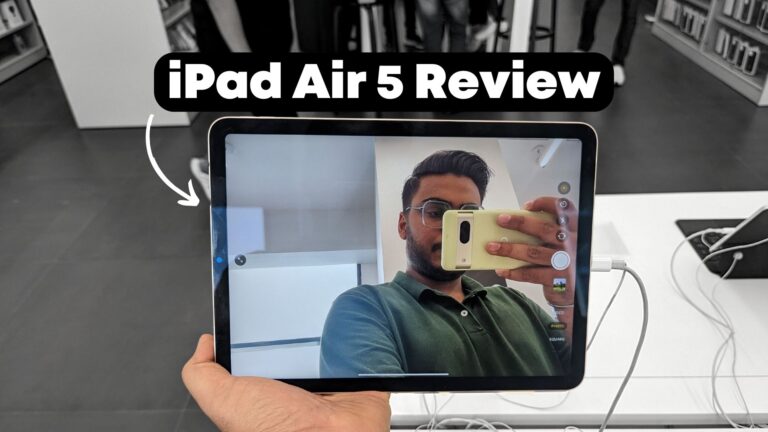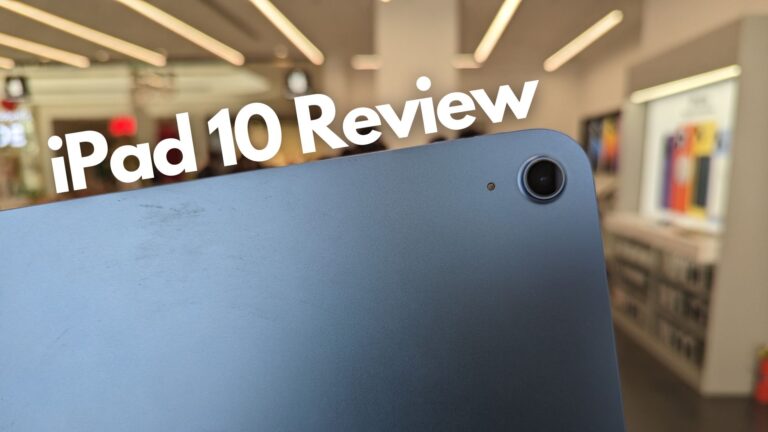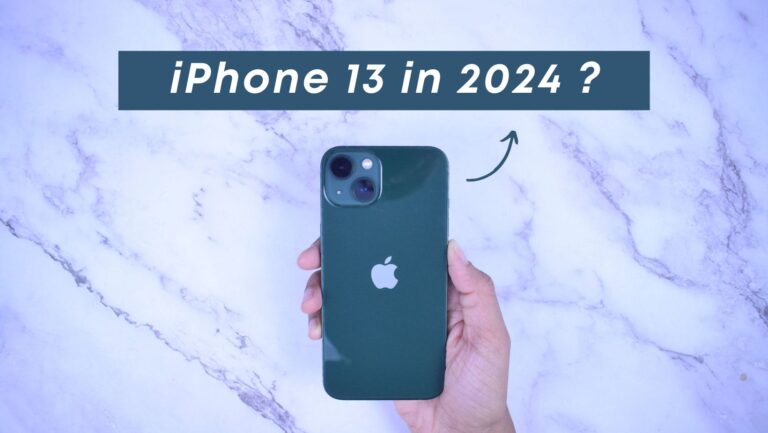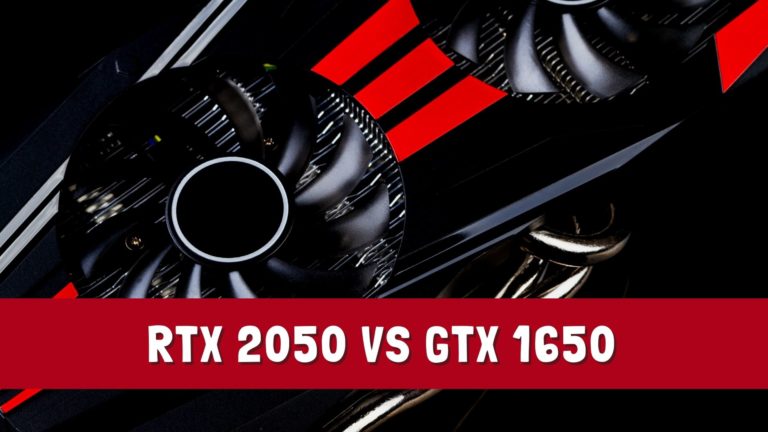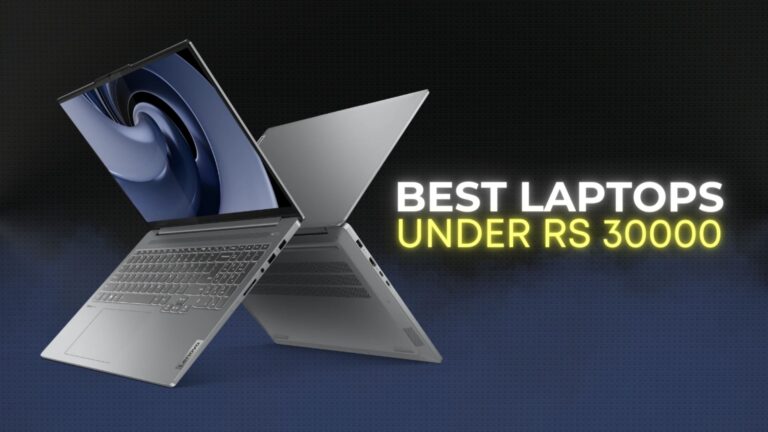As someone who has been using the iPad 8 since its release, I find myself questioning if Apple has done enough with the iPad 9. The new features include a new processor, an improved front-facing camera, a true tone display, and another change that could be considered the most significant update. Let’s review the iPad 9 more closely, discussing what I liked and disliked about it, and determining if it is a suitable option for you.
Specifications
| Model | iPad 9th Gen (2021) |
|---|---|
| Launch price | $329 |
| Display | 10.2-inch (2160 x 1620 pixels) Liquid Retina |
| OS | iPadOS 15, upgradable to iPadOS 16.4.1 |
| Chipset | A13 Bionic |
| Storage | 64GB, 256GB |
| Rear camera | 12MP |
| Front camera | 12MP Ultra Wide (f/2.4) |
| Video quality | Up to 1080p 30 FPS |
| Wireless | Wi-Fi 6, optional 4G LTE |
Design & Build

The dimensions and appearance of the iPad 9 remain unchanged, including the large bezels at the top and bottom. The device still has the Home button and Touch ID, but with one exception: the silver variant of the iPad 9 features black bezels instead of the white bezels seen on the iPad 8.
The iPad 9 continues to use a Lightning port for both charging and connecting accessories. In contrast, the iPad Mini 6 & iPad 10 saw an upgrade to a USB-C port.
Like the iPad 8, the iPad 9 retains two speakers located at the bottom. While the display isn’t identical, it remains 10.2 inches in size.
The iPad 9 continues to use the previous generation Touch ID system, which is integrated into the Home button. In terms of functionality, it has proven to be reliable and efficient for many users, including myself. The only reason for a replacement would be the potential to eliminate the larger bezels, which would enable the iPad to either become smaller or more likely, enlarge the display while maintaining the same size footprint.
Display

The iPad 9’s display is a 10.2-inch retina display with a resolution of 2160 x 1620 and 264 pixels per inch, and a refresh rate of 60 Hertz. It’s a non-laminated display, meaning that there is a gap between the display and touch layer and cover glass.
The difference between a laminated and non-laminated display is hardly noticeable when using the iPad 9 to watch content, browse the web, use various apps or play games, especially when looking straight at the screen. However, it may be more noticeable when using the Apple Pencil.
The iPad 9’s display features a True Tone display, which is the only significant update compared to the iPad 8. The True Tone technology utilizes sensors to detect the color temperature of the surrounding light, making real-time adjustments to the display’s image to ensure that white appears as white under all lighting conditions, rather than appearing too yellow or blue.
In my experience, the display of the iPad 9 has proven to be effective for a variety of activities, including watching videos, browsing the web, using various productivity apps, taking notes, and playing games.
Cameras

The iPad 9’s front-facing camera has been significantly improved, featuring an ultra-wide 12MP f/2.4 camera compared to the 1.2MP camera found on the iPad 8. This is one of the major upgrades on the iPad 9.
The front-facing camera on the iPad 9 offers several significant improvements over the previous generation, including a higher resolution at 1080P and 60FPS.
One of the most notable features is Center Stage, which was previously only available on the iPad Pro. It utilizes the ultra-wide camera’s 2x zoom-out capability and artificial intelligence to track a subject as they move through the frame. This feature is particularly useful for video calls with FaceTime, Zoom, and even TikTok, as it can make videos appear less static.

The rear-facing camera on the iPad 9 remains the same as the previous generation, offering a wide 8MP f/2.4 camera with a 5x digital zoom and HDR for photos.
Audio System

The audio system on the iPad 9 features two speakers located at the bottom of the device. This means that if you’re using the iPad in landscape mode to watch content or play games, the audio will come out of one side rather than having stereo speakers like on the iPad mini 6, iPad 10, iPad Air 4, or iPad Pro.
The iPad 9 still features a 3.5 millimeter headphone jack, which is a nice feature for those who prefer to use wired headphones or headsets while gaming or watching content.
Multitasking & Performance

The iPad 9 comes with iPadOS 15, which offers a variety of useful features for multitasking and productivity, such as split view, slide over windows, the new multitasking menu, and quick note. In terms of performance, the iPad 9 features the A13 Bionic chip, which is a powerful processor that can handle most tasks with ease.
The iPad 9 boasts an upgraded A13 Bionic chip, which enhances its processing power and performance. According to Apple, the chip delivers a 20% increase in CPU, GPU, and neural engine capabilities compared to the A12 chip featured in the iPad 8.
The A13 chip provides ample power for multitasking on the iPad 9. Even though the device retains the same 3GB RAM as its predecessor, I found it to be snappy and responsive when using multiple apps and viewing content simultaneously.
Gaming

The added power of the A13 chip on the iPad 9 can enhance your gaming experience. Although I did not experience any issues with gaming on the iPad 8, it’s always better to have more power, considering that games are becoming more resource-intensive with time.
The A13 chip, coupled with Apple’s long-term support for older devices, makes it wise to invest in a device that provides more processing power than you currently require. This additional headroom is particularly beneficial for gaming, as it ensures that you can continue to play on the iPad for 5-6 years.
Apple Pencil & Smart Keyboard

As I mentioned earlier, the iPad 9 retains the lightning port, ensuring that all your older accessories and dongles will remain compatible with the device. If you own an iPhone, the lightning port is a convenient feature, as you can repurpose your charging cable for the iPad 9.
The lightning port on the iPad 9 also allows compatibility with the first-generation Apple Pencil, which pairs and charges using this port. Although the first-generation pencil works seamlessly, it is less convenient to store and charge compared to the second-generation model.

The iPad 9 is compatible with the Apple Smart Keyboard, which is a traditional keyboard cover that connects magnetically and protects the screen when folded up. Although it is not as comfortable as the Apple Magic Keyboard, it is still adequate for occasional use.
Battery Life
The iPad 9 has a rated battery life of 10 hours for web browsing or video playback on Wi-Fi, and 9 hours when using cellular data. In my experience, the battery life has been impressive, although it may vary depending on the apps or games you use, as well as the display brightness.
Should you buy iPad 9?

Yes, you can buy an iPad 9 in 2024, and there are simple reasons for it.
If you want the best performance in any tablet without spending too much money, then the iPad 9 is the best option.
Apple is providing regular software and security updates for the iPad 9 till now.
At the time of launch, there were many bugs, but they have all been removed now.
Additionally, if you want to use it with a keyboard and Apple Pencil, you can also get discounts on them. Overall, without spending too much money, you can enjoy all the benefits.
What should I get instead of the iPad 9?
iPad 9th Generation (2021) $329
-
Design
-
Software
-
Performance
-
Display & Audio
-
Price
Summary
The iPad 9th Gen 2021 is the cheapest tablet from Apple, and it is worth buying in 2023 because the A13 Bionic chip is still capable of handling heavy tasks. Yes, the design is outdated, But if you want into the Apple ecosystem without spending too much, then this iPad is the best option for you.
Pros
- A13 Bionic is Still Capable in 2023
- Cheapest iPad you can buy
- Good Display
- 3.5mm Headphone Jack
Cons
- No USB-C
- Outdated Design
- Non-Laminated Display
